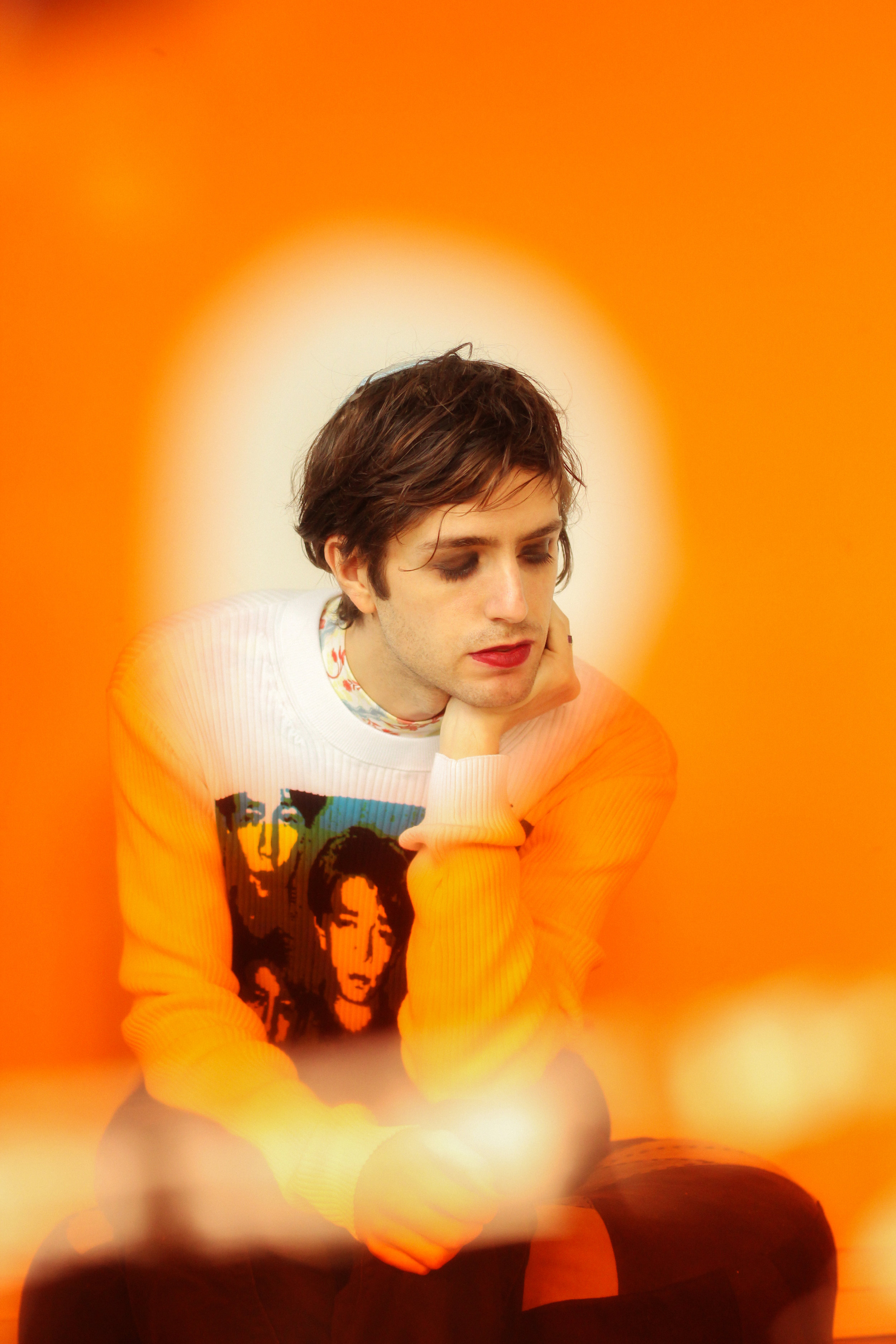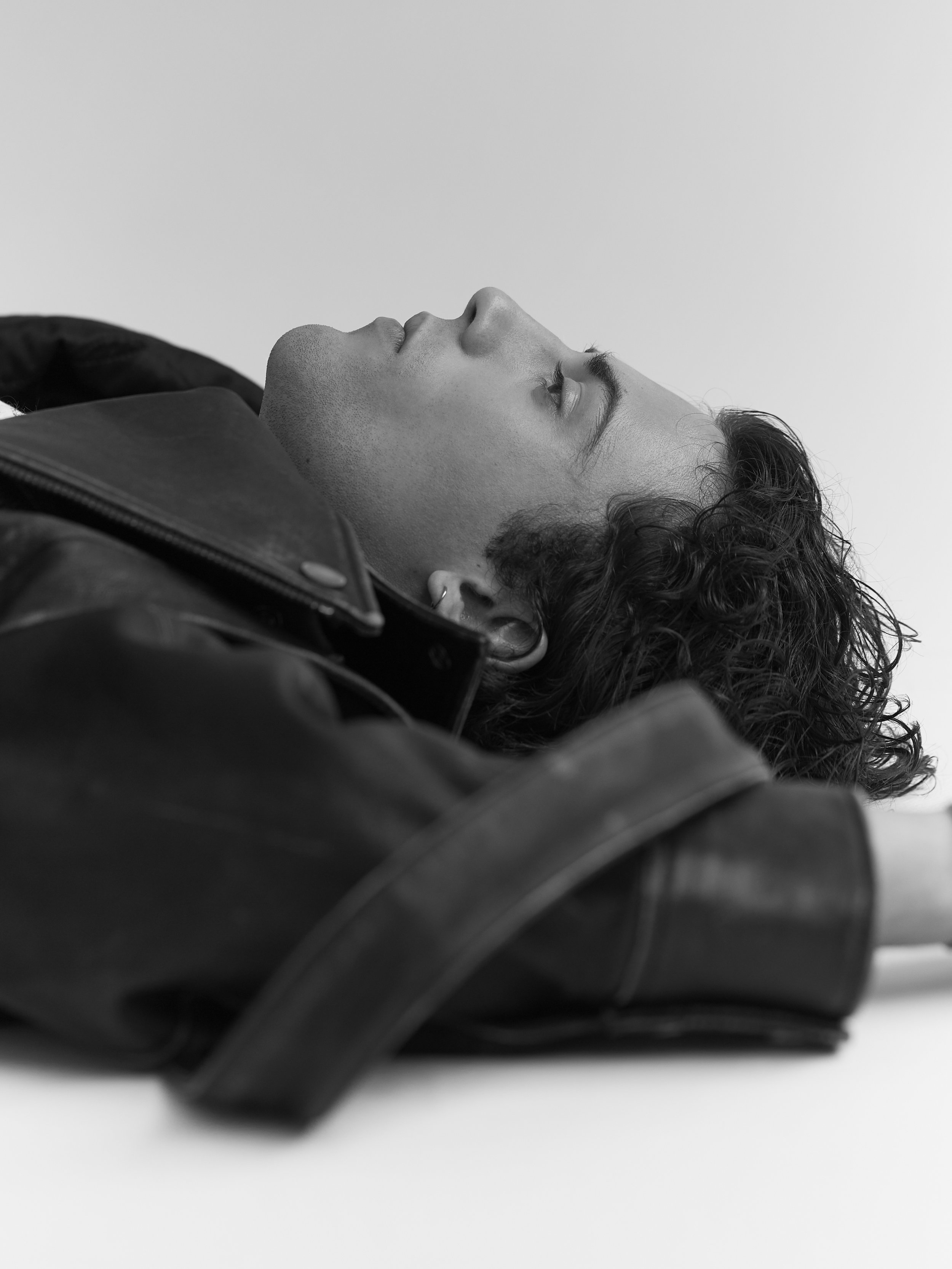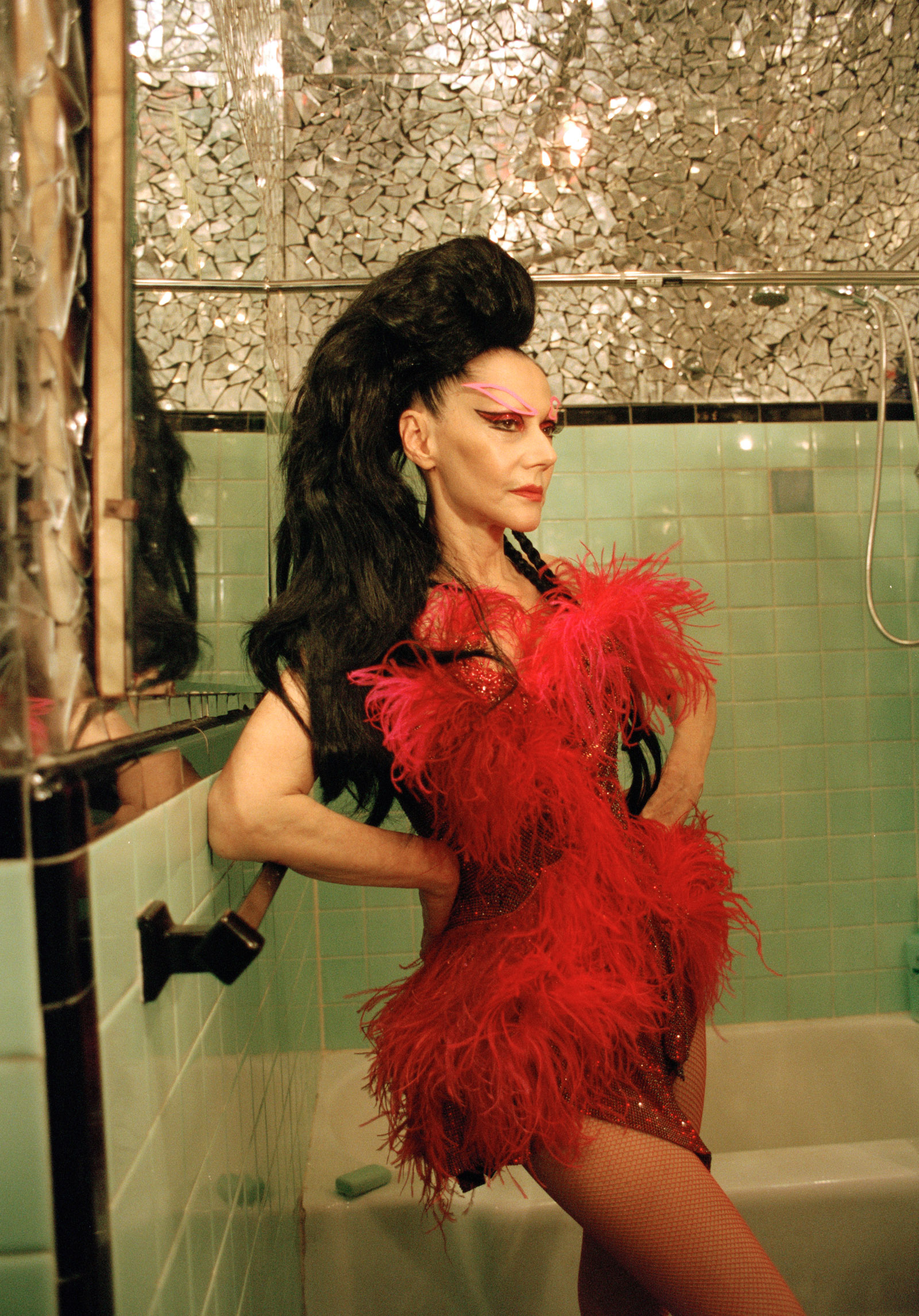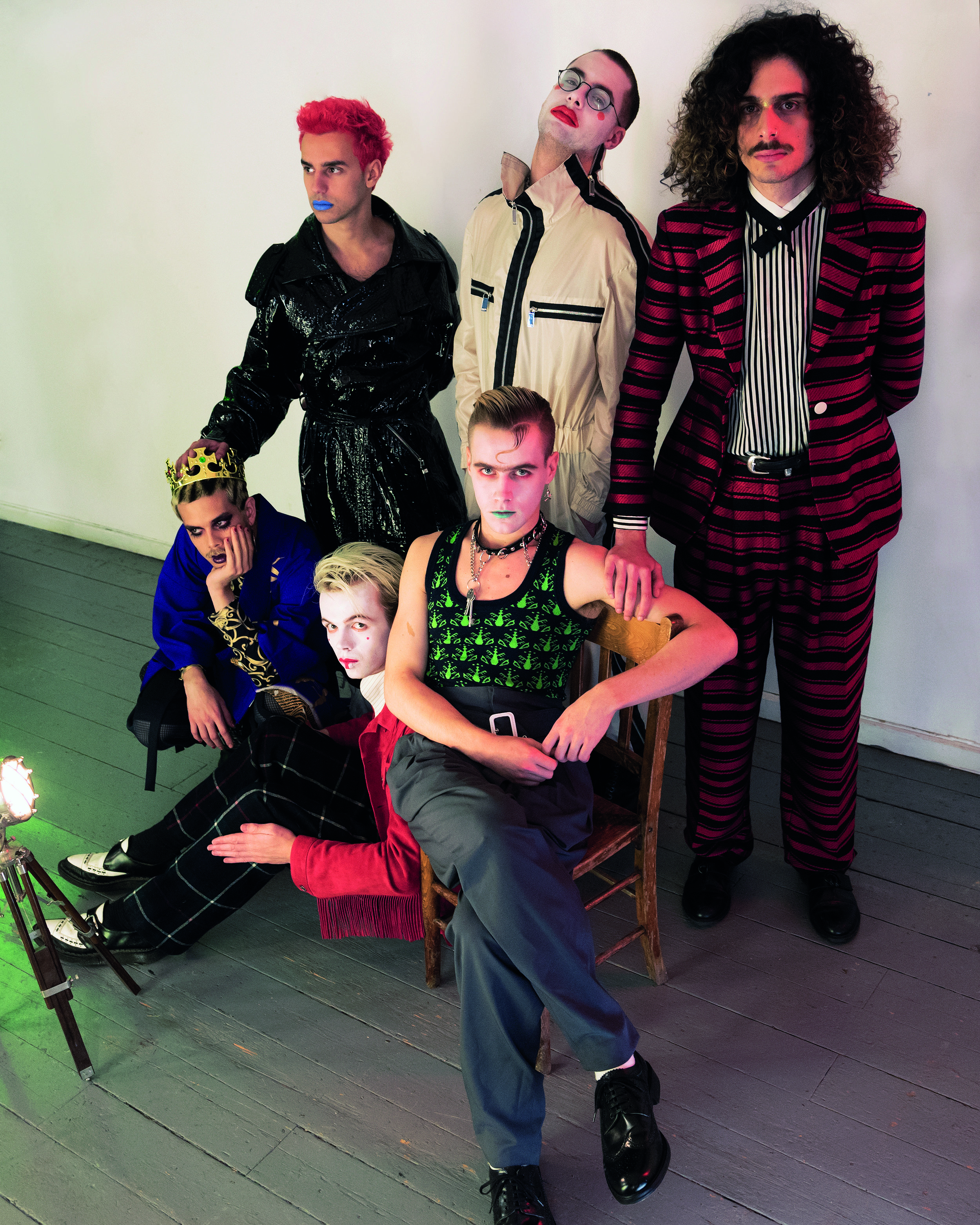Ezra Furman

Ezra Furman has had a long day of interviews. Lighting a cigarette, the 31-year-old musician sits down opposite me before informing me that he doesn’t smoke - “except only when I need to.” Exhaling quickly, he turns to me, “You can tell in the way I smoke that I don’t smoke often, probably."
First falling in love with music when he was 12 years old, Furman was originally drawn towards punk bands. “I thought that this may be part of my destiny or something.” He smiles. “That was the first music that really made me fall in love and feel involved, feel like this is my fate. When I heard Green Day I was like ‘I think I wanna be a guitar player in a punk band’, and then the next year, I heard Leonard Cohen and was like ‘oh, I’m just gonna be a great songwriter and play folk music.’ Then when Lou Reed came along I was like ‘oh, you can be a great writer and in a rock and roll band.’ I sensed something in Lou Reed that was like a future for me.”
Having been in the ‘biz for over a decade, Furman has a plethora of fantastic albums to his name and is now gearing up to release his latest record, Transangelic Exodus, in early February. Detailing a trip with an angelic companion, the dystopian plot line was never Furman’s original plan. “I found myself writing a song and then another song about an angel, and me and this angel travelling in a car being pursued by hostile authority figures of some kind. I don’t know where that came from, it wasn’t a calculation. It was one of those things where I found it in my head digging through the trash of my subconscious.” He tells me. “There are explanations, there’s a backstory to it all, but I edited all that out, which might have made it incoherent, I don’t know. There’s something that makes it more emotionally effective just letting the listener come to the image of the angel, just like I did, and being like ‘what is this? I’m not sure I understand’ because it’s resonant with the unconscious. There’s a dream logic to it which is better than a waking logic.”
His first record since 2015’s incredible Perpetual Motion People, the new album sees Furman taking, what he deems as, a step into the 21st century. “It’s different [to the previous records] because I don’t think it’s a love letter to 20th century music anymore. My last records, not to say that they were totally unoriginal, but it was me trying to do something like my favourite records. With this one, we kind of wanted it to sound like something you hadn’t heard before. It sounds more 21st century to me.” He says, taking another drag on his cigarette. “We’re making records on computers now, we’ve got limitless capabilities and it’s a little weird to try to use those capabilities to sound like it’s 1966. There’s so much you can do, I felt like I was clipping my wings a little bit. Like, how can you listen to Yeezus and then want to make an early rock and roll record?”
I ask Furman what the new album is about and he pauses. “Honestly? It’s about paranoia. Paranoia and solidarity with the vulnerable. It’s a time of increasing vulnerability. In America, people started to get scared. There’s all these gains being made by white supremacists and it’s so frightening and disgusting to me. This guy - I prefer not to mention his name right now - became President of the United States and he seems to have basically outed himself as a Nazi sympathiser and that brings up a lot of my deepest childhood nightmares. I had a lot of Holocaust education as I went to a Jewish school for much of my upbringing and I have some grandparents who survived the Holocaust by running away from home. And then you see Nazi-ish shit coming about and white supremacy becoming more and more explicitly institutionalised and sanctioned and propagated and you start to wonder how safe your friends are, how safe you are.”
“I think of myself as pretty safe.” He continues. “But then I hear about transpeople getting murdered or somebody, a stranger, on the street says something cruel and frightening to me and it kind of set off this searching process of writing songs about how safe am I or what if this place I thought was safe in is actually not safe for me. It became kind of a saga of me and my transangelic companion running away from home together and sleeping in the car and sleeping in parking lots and us against the world. That kind of shit.”
As just mentioned, Furman’s gender-nonconformity and experience with that forms another level to the album, with track “Maraschino-Red Dress $8.99 at Goodwill” describing his, often painful, experience head on. “I feel more and more reluctant to say anything about gender because for me actions speak louder than words and words usually don’t work, they’re normally not quite right.” He says when I ask about his experience. “I might say I’m gender-nonconforming or tom-girl - that’s one I like - tom-girl is kinda good. I’m doing my thing. I don’t feel such a strong pull to join a team or a group, although I’ve got a lot of respect for those labels, those teams, those groups. They are really important for some people. For me, I’m just improvising the whole gender thing. Like, I just use the word bisexual for instance to describe the fact that who I’m attached to doesn’t seem to go along gender lines.” He laughs. “It’s just a name I use to describe the fact that I’m sleeping with various people of various genders.”
With his new album tackling such personal issues - ranging from politics, to religion, to gender - I ask if he ever finds it difficult to sing about certain things. “I guess what I’m learning is that any writer faces that problem.” He smiles. “Singing songs, that’s confessional by nature, you can’t hide yourself in a song really. It’s a vulnerable thing to do, to lift the voice and sing. It doesn’t scare me. I feel more worried about saying stuff in interviews than I do about saying stuff in songs.” He laughs, finishing off the last drags of his cigarette. “I have to smoke cigarettes down to the bottom because my favourite thing about cigarettes is that you get to burn the name of the company that sold it to you.” With Furman, it seems, there’s a reason behind everything.
Photography - Hanifah Mohammad
Gay Times January 2018 Issue




